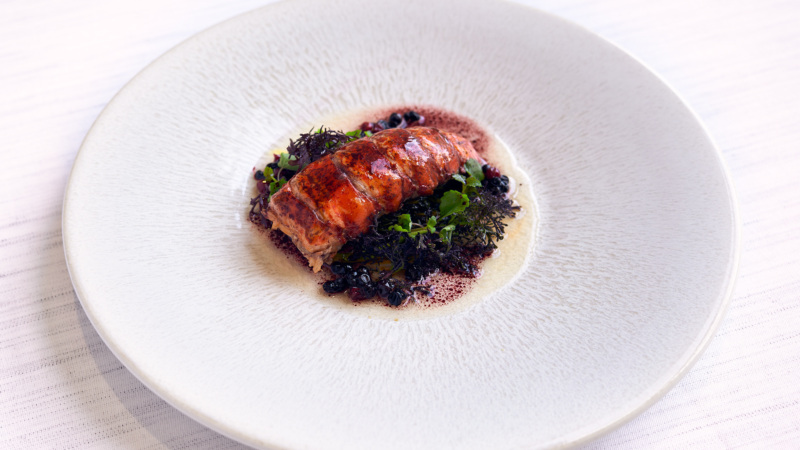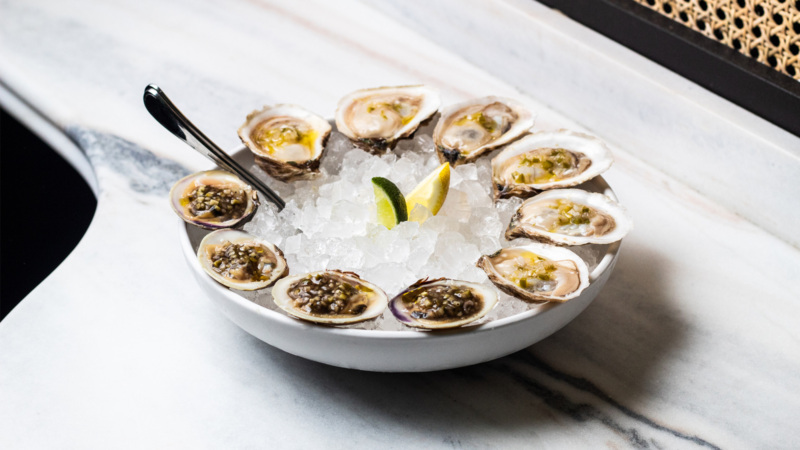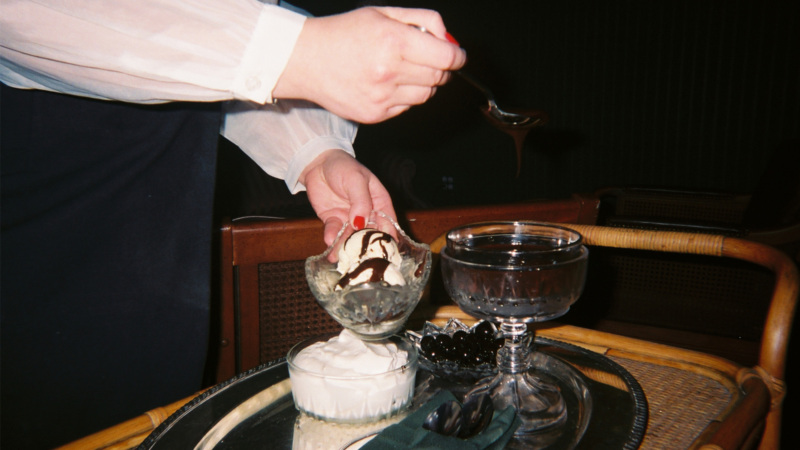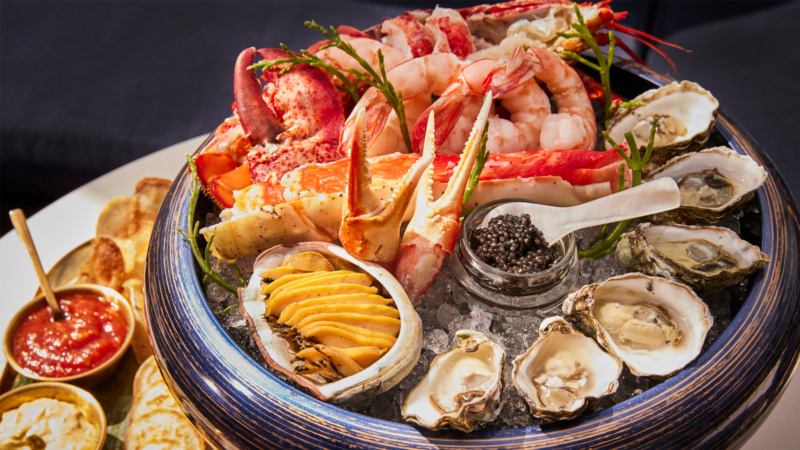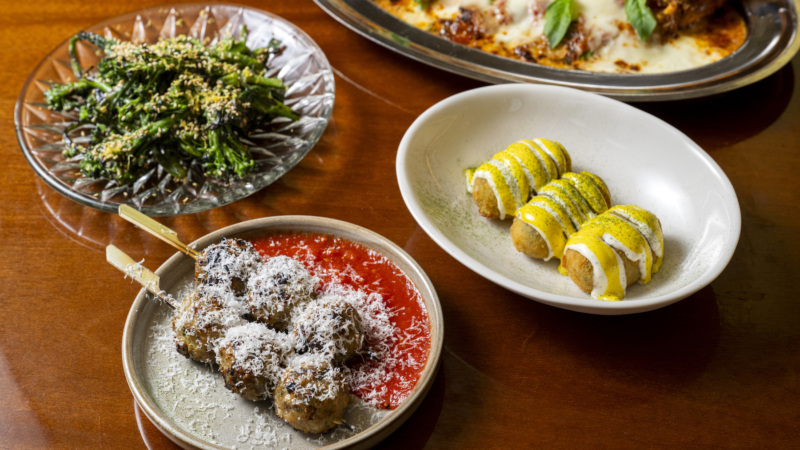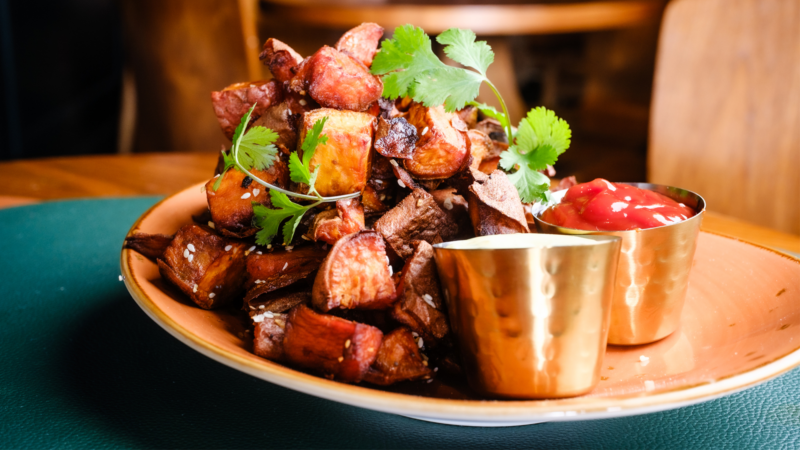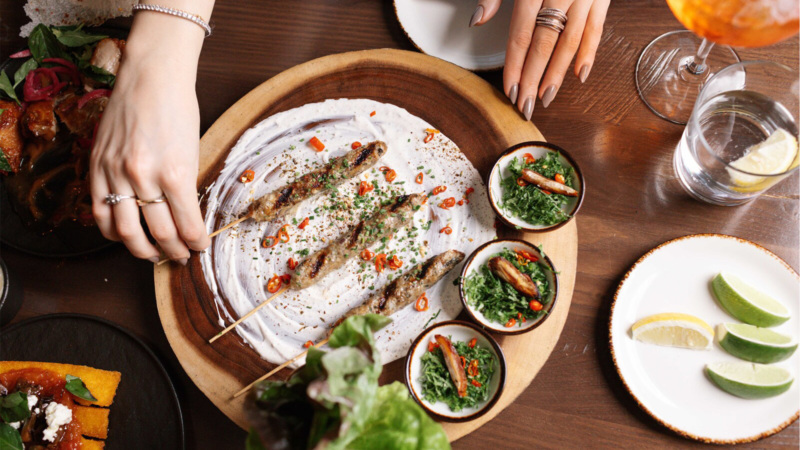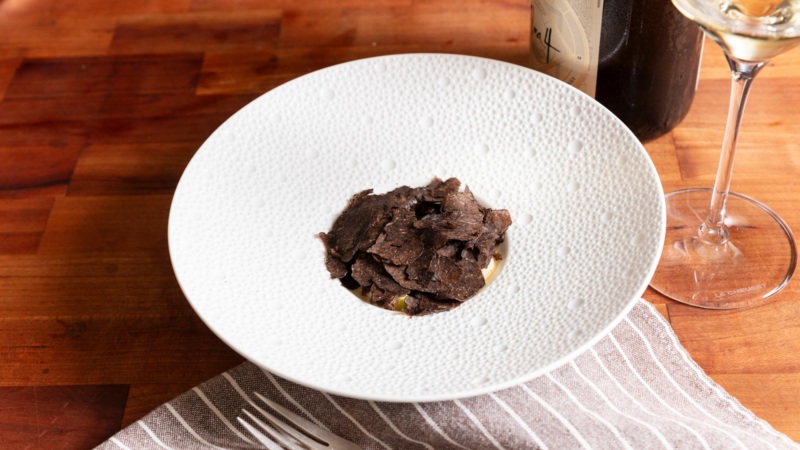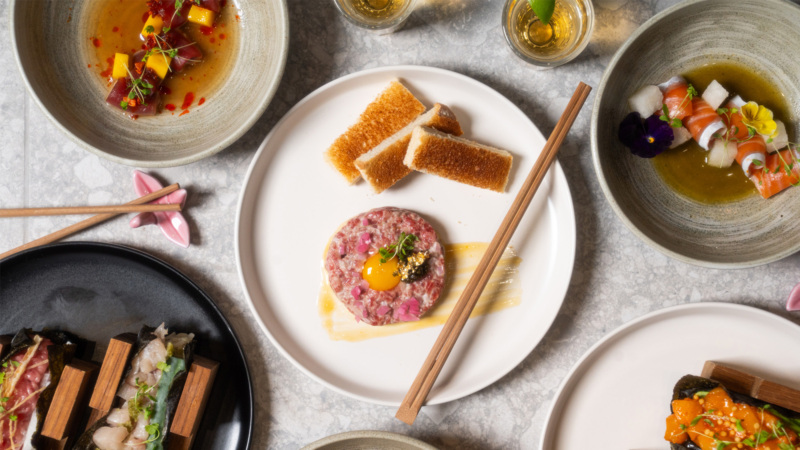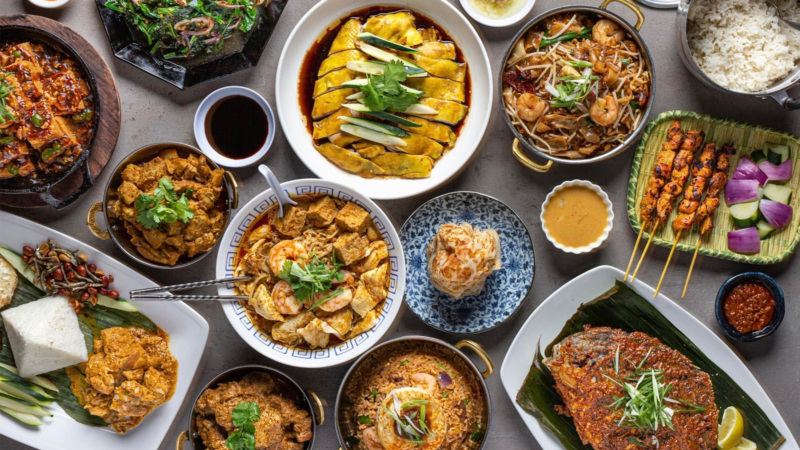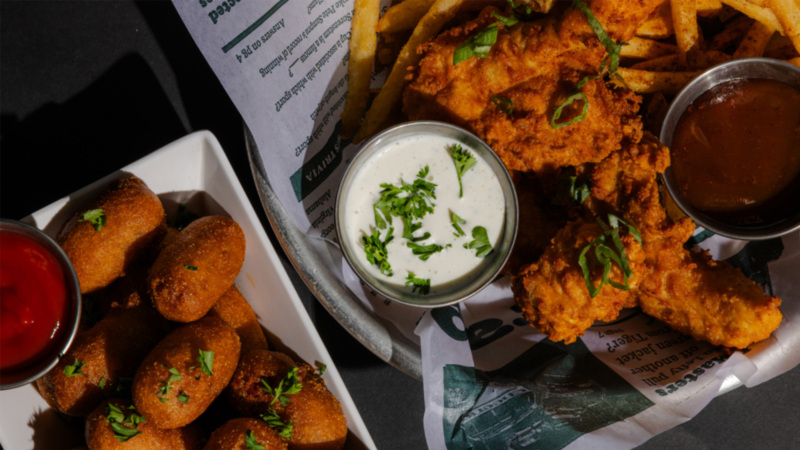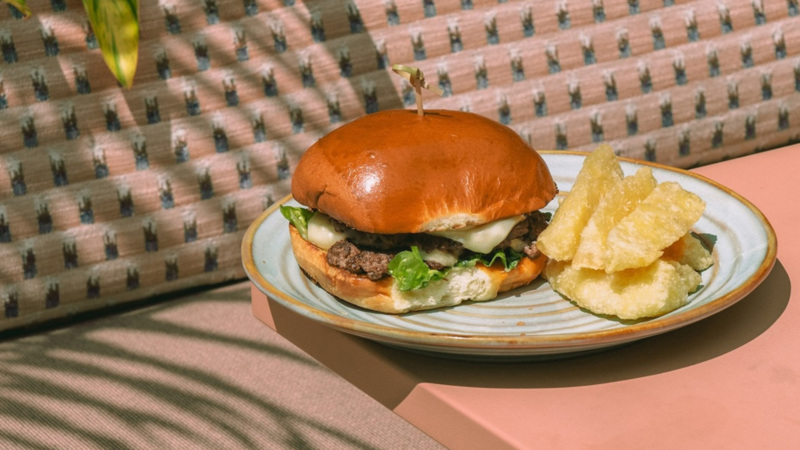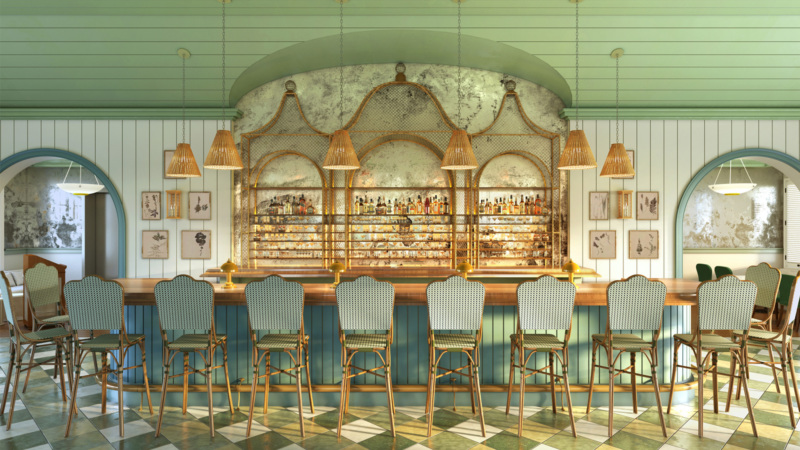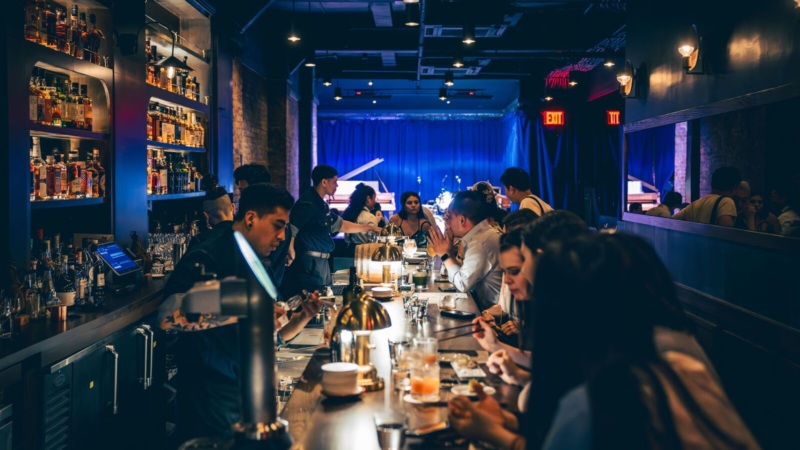
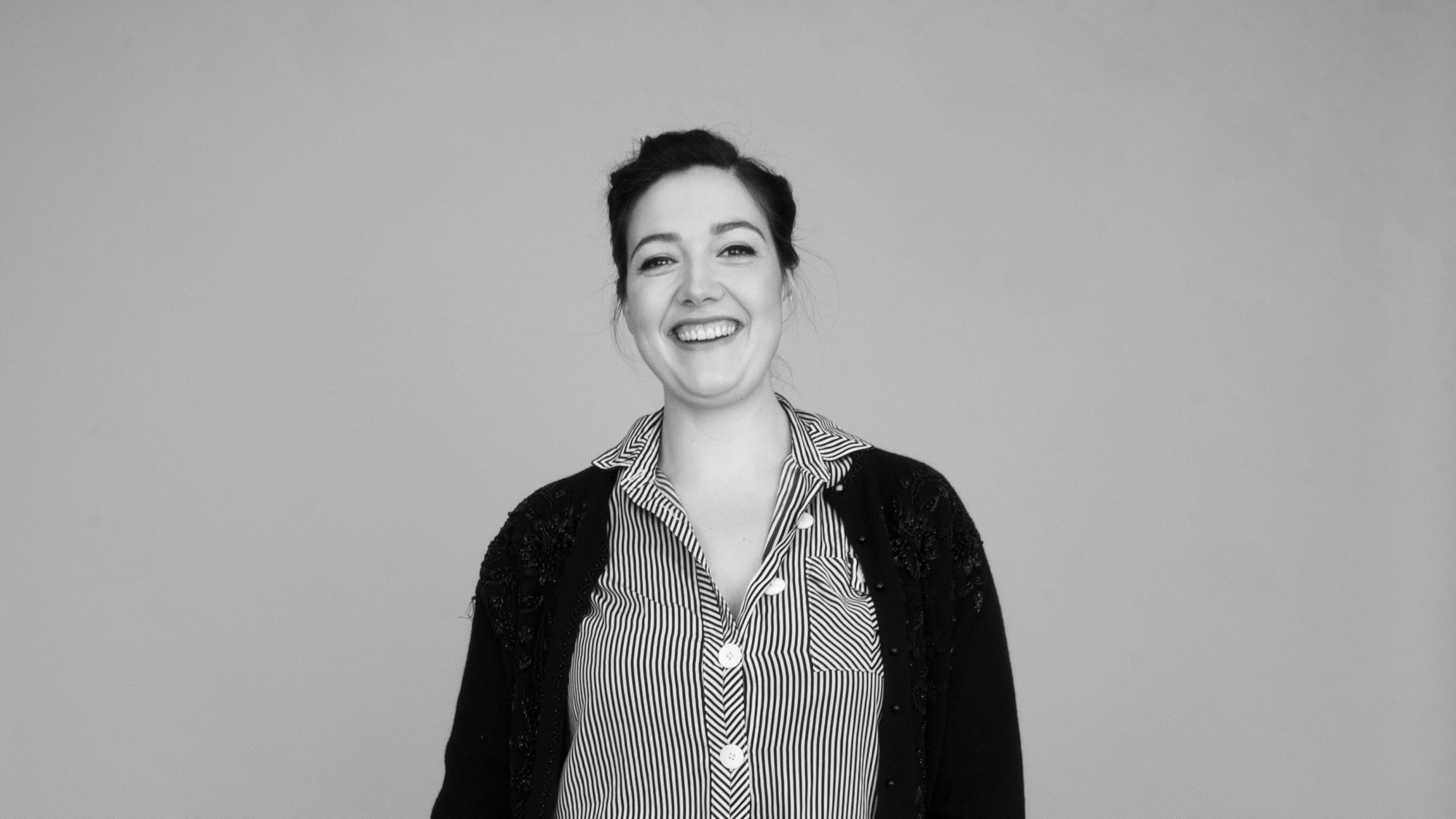
‘There Is a Power Imbalance There’ – Anna Higham, Pastry Chef and Writer
Having cemented herself as one of London’s premiere culinary talents at Lyle’s and Flor, pastry chef Anna Higham has won admirers with her creativity and leadership. It’s something she took to The River Cafe, where she led a team that crafted the legendary restaurant’s desserts. She published her debut recipe book The Last Bite in 2022. We spoke to her at length about how structural patriarchy manifests itself in restaurants, how businesses and the industry can address sexism, and how to create spaces of equality in restaurant workplaces.
Patriarchal structures present in multiple ways. What are some of the ways that you see these structures manifest?
One of the most obvious ones for me is uniforms. You can buy chef jackets that flare for your hips or tailored chef trousers but that means laundering your own uniform every day. If you work somewhere where all or part of your uniform is supplied, that means a struggle to find clothes that fit at the start of every shift. It means wearing oversized jackets to accommodate breasts and hips – I often have to leave the bottom poppers undone for my hips.
It means being constantly a little uncomfortable, aware that your body has not been considered for the space you occupy.
I have worked in some really creative kitchens where the menu is a conversation between the team. But if it is not actively managed, then it becomes overwhelmed with the loudest, most confident voices. I’ve seen a lot of men progress quickly because they are loudest, and the skilled women beside them go slower because they are waiting to be asked directly rather than pushing forward. To be successful the head chef there has to actively encourage and seek answers from all the team, recognising that many will not feel entitled to speak up unless personally addressed.
And finally, I think the big bias is the way emotions between genders are handled and perceived. Tears are weak but losing control and screaming at someone or punching a wall is strong. I have cried in kitchens, I often cry when I get angry or completely frustrated. My male seniors mocked me when I was early in my career or have given knowing looks and an eye roll around the kitchen later on. That’s not to say I’ve never had compassion from a male co-worker but there is still the feeling that it is treated as an uncomfortable issue to deal with.
I work incredibly hard to regulate my emotions in the kitchen. Professionalism really matters to me. Managing others well matters to me. Whatever is happening in my life or body or just that day, I work to make sure my emotional reactions to a situation are calm and considered. I have spent a lot of time being aware of the things happening in my male co-workers’ lives, bodies or days and seen whatever it is be used as an excuse for their mood and emotion to overwhelm the environment.
Their male emotion, of which there is an awful lot, is accepted and adjusted to, but my occasional female tears are treated as awkward or inconvenient.
The spaces that women, or non cis men, occupy in restaurants are often not given the limelight. Is there a shift to value other positions and expertise?
In the USA, pastry and savoury are two distinct streams of study and work. The fact that pretty much all British chefs will spend time on a pastry section means there is a good base knowledge across the kitchen, but it also leads to chefs being dismissive of it as a discipline – the classic, “well I did 6 months on pastry, and it was pretty easy”. It isn’t always valued as part of the meal but rather seen as a superfluous or frivolous thing that begrudgingly needs to be on a menu.
It strikes me that that’s a strong parallel with how some men view other genders in general: necessary but frivolous.
As a restaurant pastry chef, you are dependent on the savoury kitchen to have a job – no one is coming to dessert-only restaurants. You are therefore dependent and beholden to the head chef and no matter the good intentions and positive relationships, there is a power imbalance there. I see my opinion sought and upheld when it is in alignment with the head chef and easily dismissed as ignorant (ignorance of the full spectrum of the culinary language, skill, or history) when it does not align. My knowledge can always be trumped because a head chef has “done pastry” and knows better, never mind my decade of experience in the discipline.
It is always hard to walk into a room where you are alone. Hard to relax, feel confident and therefore excel.
I think it is slowly shifting. There is a shift from the leader needing to hide any lack of knowledge to a more open style where the collective knowledge of the team is prized. It goes with the lessening of the need for a brash, ego driven chef. There is also a slow realisation that we don’t all have to be great at everything. To build a sustainable and attractive team you need to have more staff to cover the extreme hours, having specialists now makes a bit more sense. I think we have to keep encouraging the attitude shift that all chefs should know everything. Rather, that for each individual to excel, the focus of a singular discipline can push them further than a generalised approach can. And a kitchen full of workers with expertise in different areas and approaches is a stronger platform for creative thinking than a room full of people with the same generalised knowledge.
What barriers have you come across that felt directly related to sexism?
Every time you walk into a kitchen full of white men you feel it. So pretty much all the kitchens I have trialled in. It is always hard to walk into a room where you are alone. Hard to relax, feel confident and therefore excel.
As I’ve gotten older it’s also been interesting to see restaurants’ approaches to maternity and paternity policy. There is no forward planning for those policies. Situations are dealt with as they come up. I have seen them be dealt with as generously as possible in the environments I’ve been in, but I think the lack of planning and policy creates a very precarious environment for someone who wants to have children to enter into.
It’s hard to feel you can progress and move up in an environment where there Is no formal provision for parental leave. You are at the mercy of your particular manager’s generosity rather than an empowered worker. It worries a lot of women I’ve worked with who have come to the industry a little later in life. They don’t see how they can progress to the top levels because of it.
What are some key changes you’ve seen recently that you think will create gender equality?
I think the lack of staff we’re experiencing at the moment means everyone is re-evaluating what they offer and how they can be as appealing as possible. Staff are recognising their own needs and asking for them. That is hopefully meaning that companies are understanding that offering flexible shifts and putting strong maternity and paternity policies in place will help hold onto staff.
Also, kitchens having to advertise for staff on different platforms helps to get a different demographic in. When kitchens were used to being approached and just having a flurry of CVs they were picking from a very particular pool. The need now to use platforms such as Countertalk actually allows groups of people, who might not have the confidence to reach out on their own or not know how, to get started on a straightforward route into previously impenetrable businesses.
What advice would you give marginalised people so they can advocate for themselves?
Make sure contracts are in place and that they know what that contract offers them. I’ve been having a lot of conversations with other senior women in the industry recently where we are realising that junior staff just don’t know what their workers’ rights are. Educate yourself about what your rights are.
Also seek out mentors and advocates in positions above you. Whether that’s within the business you’re in or outside. There are so many networking events or platforms now. Even find people on social media that you respect in the industry and reach out for advice or a mentoring relationship.
How have you helped create spaces of equality in your places of work?
I think I need to look at how and where I advertise to put these kinds of jobs in the eyeline of people beyond my sphere.
I try really hard to build an emotionally open and honest environment. On an everyday level, that means me being honest with my team about how I am each day, being tuned in to their behaviour and creating the space for them to talk. Longer term, that means 6 month and yearly appraisals. We talk a lot about what they need or want to progress. I try as much as possible to use my connections and experience to connect the team into stages to build their own experience.
We talk about pay as openly as possible. People need to know what they should be asking for and where they could get to. I encourage people to ask for more when hiring. I advocate for pay rises for them whenever I can.
I guess it’s about being tuned into the environment a lot of the time. I will always question language that I hear that is misogynistic or at all homophobic or transphobic. I try to have conversations with the people saying those things to say why that language matters. Explaining why a male chef can’t use the word “pussy” is a conversation that I’ve had to have too many times in my career. I want the people who work under me to know that it is possible and a good thing to question the language around them.
If anything makes them feel uncomfortable then they need to know they can speak out and that they have a manager who will advocate for them if they don’t feel they can speak for themselves.
Anna Higham is a pastry chef and writer of The Last Bite.
Anna Sulan Masing is a London-based writer and academic, and a co-founder of Sourced Journeys and Cheese Magazine. Follow her on Twitter and Instagram. Follow Resy, too.
Discover More


